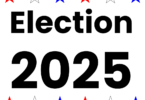Pennsylvania’s 2018-2019 budget has been signed by the governor more than a full a week before the deadline.
The $32.7 billion budget that doesn’t include any tax increases was signed by Democratic Gov. Tom Wolf after receiving the green light from the Republican-controlled state House of Representatives and Senate.
The governor’s office noted in a press release that the spending plan invests in education, workforce development, and adds money to the rain day fund.
The budget includes $25 million in additional funds for pre-K and head start, $100 million for basic education funding, and $10 million for career and technical education. It also puts more than $61.4 million toward school and community safety while increasing funding for higher education. In addition, the state will be able to serve 1,100 more kids with child care by putting $6.8 million in additional funds toward the program while also assigning $5.3 million for community-based family centers. Additional funding will also be put to various budget items related to the opioid crisis.
The Pennsylvania State Police will have their body-worn camera program funded with $6 million. They will also receive $43 million assigned for communication and infrastructure purchases to move forward with the modernization of Pennsylvania’s Statewide Radio System to comply with federal requirements.
Wolf’s office highlighted savings the administration has implemented. The state has reduce staffing levels by over 1,700 positions without the use of furloughs, merged human resource and IT services for all executive agencies, and pushed forward with practices that have saved the state close to $400 million.
The Associated Press reported the Education Law Center said the state still has “miles to go” to rework its school funding system and AARP raised concern that the budget takes about $300 million from the lottery and diverts it to Medicaid funding.
The budget includes a plan to replenish the state’s rainy day fund. Wolf said in an interview with WITF last year that the fund balance sat at $245,000. PennLive.com noted the a Governing magazine article had the rainy day fund balance at $755 million just nine years ago.
Earlier this year, a Moody’s Analytics study found that Pennsylvania’s rainy day fund had a smaller reserve than many states.
The election year budget is the first that Wolf has signed since he assumed office in 2015. The previous budgets became law without Wolf signing them due to disputes.









